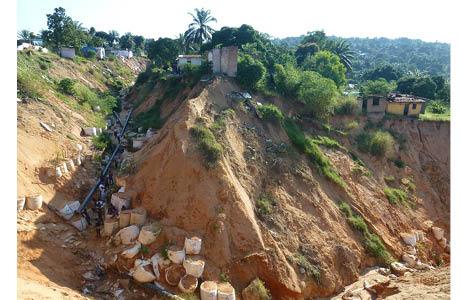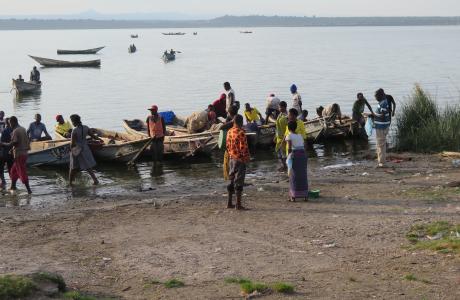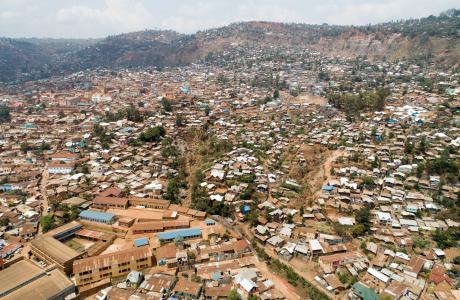Swahili-Arab heritage in the eastern DR Congo
The presence of Swahili-Arab traders in the eastern part of present-day DR Congo had a lasting impact on the populations of the region. However, this legacy and related objects that are now in Belgian collections, remain largely unstudied. Provenance and object biography research aims to provide a more nuanced historical understanding and to enable a dialogue with source communities on this Congo-Swahili-Arab history and heritage.
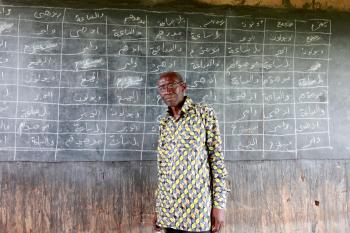
Interview with Mr. Aboubakar Husseini, Imam of the mosque Quartier 18, Kasongo, RD Congo, © Georges Senga.
As early as 1860, traders from the Swahili coast on the shores of East Africa settled in the eastern part of the present-day DR Congo in search of ivory and slaves. Their presence had a lasting impact on the populations of the region. Swahili is now the common language and the practice of Islam is well established.
Between 1892 and 1894, the colonial troops of King Leopold II carried out several military operations in the area under Swahili-Arab control. Objects, taken as war trophies, found their way from family heirlooms to the Royal Museum of Central Africa (RMCA) and the War Heritage Institute (WHI), where they became tools of colonial propaganda.
Provenance and object biography research
Colonial research traditions have long considered Swahili-Arab culture as foreign in the Congo. For this reason, no intensive research has been carried on these collections in Belgium. Within the framework of the project 'Congo-Arab Heritage in Historical Narratives' (CAHN) and in collaboration with the WHI and the KU Leuven, a team of researchers from the RMCA carries out provenance and object biography research. The focus is on objects that can provide information on the cross-cultural interactions and borrowings between the populations of the Upper Congo Basin and the East African coast.
“Questions on the context and whereabouts of this legacy in the DR Congo remain largely unanswered. It is precisely this legacy, which includes the connection between the source communities and the objects, that will be explored in order to construct a multi-vocal perspective on Congo-Arab history and heritage”, archaeologist Noemie Arazi (Royal Museum for Central Africa) explains.
Breaking with colonial narratives
Research on the objects from the RMCA and the WHI have the potential to shed new light on the connectivity between the coast and the Upper Congo region, breaking with narratives inherited from the colonial period. “The aim is to encourage a more nuanced historical understanding and critical consciousness by challenging the myth that Belgium liberated the Congo from Arab slavery”, Noemie Arazi says. The project also establishes a collaboration between scholars in educational science for teaching programs, artistic interpretations and public oriented events.
Fieldwork
Funded by the Federal Science Policy, the CAHN project started in 2021 for a period of four years. Fieldwork was carried out in the Maniema Province in the autumn of 2021 with the aim to open up dialogue with the source communities on the objects at the RMCA and the WHI. More in-depth fieldwork will be carried out in the Maniema Province and in Tanzania between June and September 2022, which should result in an important reappraisal of the narratives inherited from the colonial period.
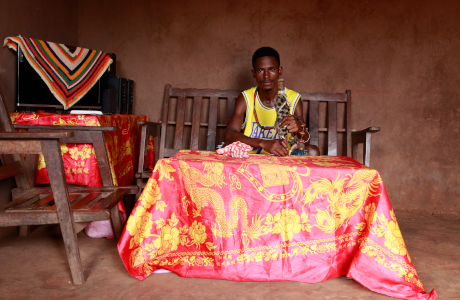
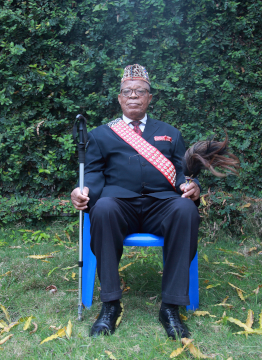
Kasongo (im)material
In 2021, together with Congolese photographer Georges Senga Assani, Noemie Arazi made a documentary that explores the forgotten history of the Swahili-Arab in the DR Congo. Kasongo (im)material shows how their trajectory from oppressors to oppressed along with the local adoption of their culture and language mirrors the tensions and ambivalence of history and heritage. Interweaving scenes from excavations with archival material and contemporary recordings, they engage with the affective impact of that which persists from the past into the present.
The Belgian premiere of Kasongo (im)material will take place at the Afrika Filmfestival in Leuven on May 7 2022.
